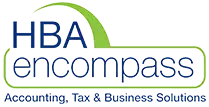Most times when you sell a business, the buyer wants to put an earn out clause or a retention clause into the sale. What this means it’s a bit of insurance for them, that if they buy the business, that there’s nothing that’s going to change in the next 12 months, and then 12 months or 18 months time or two years, whatever the course period is, that the business is still worth what it was when they bought it.
For instance, when we bought our Gympie Office – River Accounting, we had an earout clause to make sure that the fees that we received from the business earned in the first 12 month of owning the business is the same as what we paid for. It’s a way of making sure that the buyer is protected.
From the seller’s point of view, it gives them a lot of incentive to either stay in the business or to assist with hand over to make sure that clients aren’t lost. This is because there is a certain percentage of their sale price that won’t be paid until 12 months down the track. If that business does drop in value, their sale price is reduced. This really gives them skin in the game to stay around and remain helpful that next 12 months.
A retention clause or earnout clause is not a bad thing, it’s very common. It depends on your preference and what you want to do. If you don’t have one, then it’s quite normal that the seller will have to drop the price, because the buyer will want to factor in the risk of the business decreasing after they take over.
From a capital gains point of view. The actual gain goes on the contract at the date of contract. If there is an earn out clause, which has changed at a later date, and it’s less than you need to go back to that original calculation and amend the tax returns and the capital gains. It’s not something that is you only pay tax on the first 80% to start with when you get those funds and the remaining 20% two years down the track when you get the balance. You pay tax on the whole amount to start with.
This is why it’s really important that you speak to your accountant when you are negotiating the sale of your business. We can help work this out for you look at the maths, look at the tax and make sure that you’ve got the best outcome.


